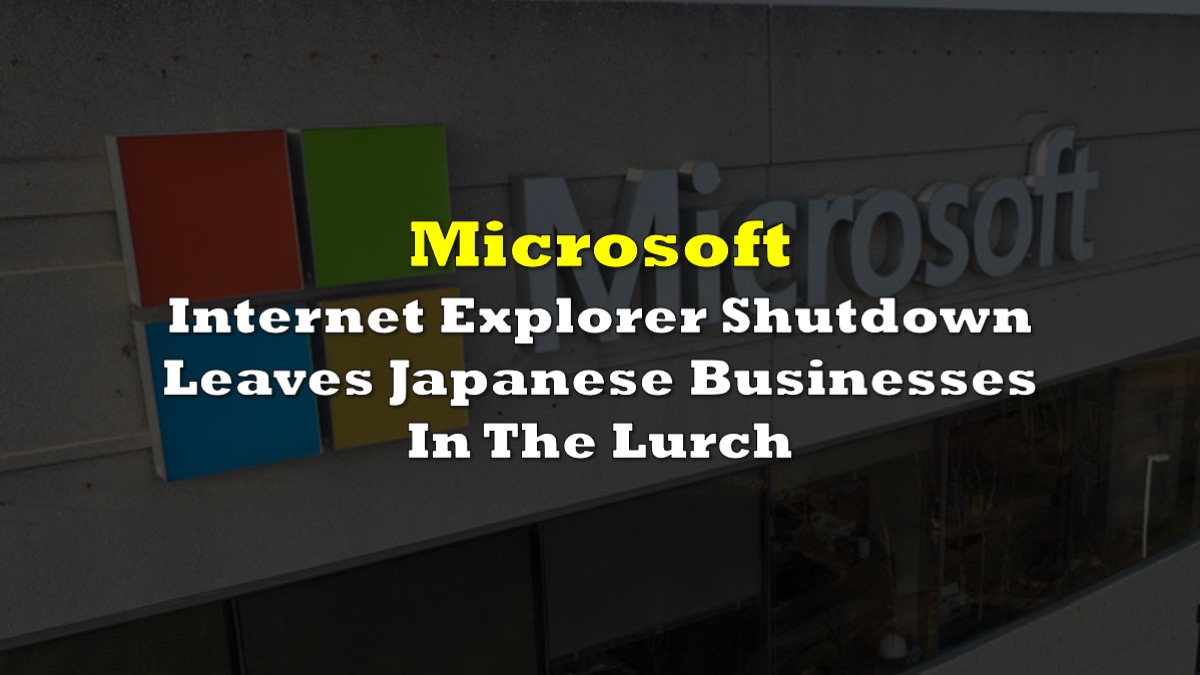Microsoft Corp. (NASDAQ: MSFT) on Wednesday retired its web browser, Internet Explorer, causing a bit of a stir among Japan-based businesses and government agencies that took their time to update their websites and transition off of the browser.
Released in 1995, IE was for a time the most-used browser in the world, owning 65% of the market share up until 2009. But the tide turned after the release of the frustrating IE6 version in 2001, and the launch of Google Chrome in 2008. As of last month, IE’s market share was down to 0.64%, according to Statcounter.
not internet explorer joining the 27 club https://t.co/vYWbTtIMDO
— mount bellyache (@mountbellyache) June 15, 2022
Most of these users of these remaining users were apparently in Japan. In 2022, a Keyman’s Net survey found that 49% of organizations — mostly government agencies, financial institutions, and manufacturing and logistics firms — still run websites that are only compatible with IE.
While Microsoft discontinued new feature development for the browser in 2016 when the successor Edge was released, and announced IE’s imminent shutdown last year, many of these organizations procrastinated, with up to 20% of the survey respondents saying that they have not figured out how to transition to other browsers from IE.
The survey found that the browser was being used for many crucial internal business processes, including attendance management and expenses settlement.
To support the transition, Microsoft Edge has been integrated with an IE mode. This will allow users to access their IE-based websites and applications as they update.
Microsoft’s shares are down 25.87% in the year-to-date period. It last traded at US$248.10 on the Nasdaq.
Information for this briefing was found via Keyman’s Net, Nikkei Asia and the sources mentioned. The author has no securities or affiliations related to the organizations discussed. Not a recommendation to buy or sell. Always do additional research and consult a professional before purchasing a security. The author holds no licenses.









